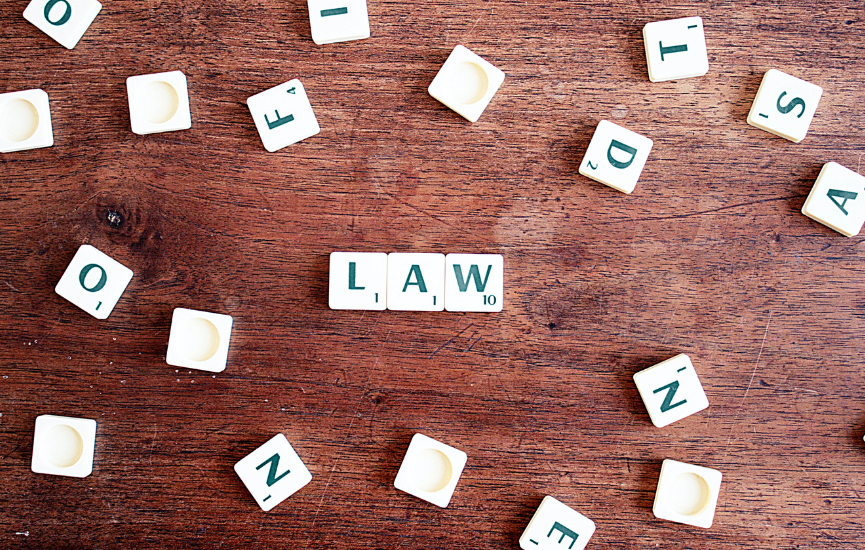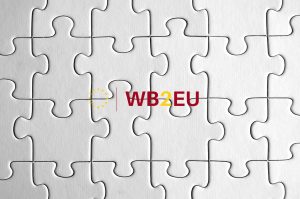Policy Recommendations
- The legal framework and practice regarding elections, the election campaigns, oversight and funding of the campaigns in Serbia need to be improved.
- Law enforcement agencies must start working together to fight organised crime, money laundering and other forms of serious crime. Furthermore, they should focus on preventing connections of organised criminal groups with politicians and political organisations.
- All the amendments of the Constitution, although very necessary as well as a step forward in EU enlargement negotiations (Chapter 23), must be put on hold until democratic and fair elections can take place and return legitimacy to the Serbian Parliament.
Abstract
Serbia in the year 2021 is a captured state with institutions completely under control of one party. With the ruling elites involved in serious cases of organised crime and corruption, in the situation where the opposition is shattered and fragmented and where the free independent media and civil society organisations are under constant pressure of the government it is very difficult to speak about the EU integration process and the developed system of the rule of law. It seems that the Serbian ruling elites are not very interested in the European values and on the other hand the European Union can do more in conditioning further accession with full implementation of the rule of law and parliamentary democracy. This Policy Brief will discuss several examples of the dire situation in the field of rule of law in Serbia and also offer some policy recommendations for overcoming it in the future.
****************************
Rule of Law and Justice – Case Serbia
Introduction – No Progress
In all official reports on the political situation in Serbia, from the European Union (EU) and its institutions such as the European Commission[1] and the European Parliament[2], through the reports of established international Non-governmental Organisations (NGOs) such as Freedom House[3], the reports of Serbian Non-governmental Organisations such as CRTA (Center for Research, Transparency and Accountability)[4], YUKOM (The Lawyers’ Committee For Human Rights)[5] and many others, it has been noted and pointed out that Serbia showed no progress in the area of rule of law and justice reform. So, it is no wonder that the rule of law, together with negotiations with Pristina is the stepping stone of this country’s European integration. It is often presented by the Serbian ruling elite that “the West“ will turn the blind eye on the very difficult situation in Serbia concerning the rule of law as long as the Kosovo issue is resolved in a long-lasting and comprehensive manner.
Captured State
State capture can be defined as systemic political corruption in which politicians exploit their control over a country’s decision-making processes to their own advantage[6]. Serbia, as well as almost all Western Balkan states, was recognised as the place where the state is captured by the political elites – or better said by the ruling party or its leader.[7] This capture is being implemented through total control over all institutions in the country – all three branches of power (legislative, executive and judiciary). In many ways this kind of setup hinders the prospects of European Union (EU) integration for the country which has been officially in the accession process for seven years.
The completely new term “stabilocracy” was invented to explain the situation where local autocrats are being tolerated despite their wrongdoings within their countries as long as they preserve stability in the region.
At a certain point it looked like the EU accession process is the best cure for the phenomenon of captured state since it develops the mechanisms necessary for the establishment of accountability and democratic procedures. However, not only has the EU so far been unable to counter the rise of state capture in the Western Balkans and especially Serbia, but many experts now agree that the EU even contributed to state capture by providing autocrats with funding and legitimacy[8]. The completely new term “stabilocracy” was invented to explain the situation where local autocrats are being tolerated despite their wrongdoings within their countries as long as they preserve stability in the region[9].
By organising early elections almost every two years the ruling party is keeping the society in constant electoral campaign with huge abuse of state functionary positions.
The Serbian Parliament, which is today without the opposition because of the boycott of the elections in 2020, is reduced to be merely a voting machine. One of the reasons for such a problem is the boycott of the elections in 2020 by major opposition parties. But what is even more important is the fact that strong state and public sphere capture of the ruling Serbian Progressive Party (SNS) has destroyed minimum precondition for free and fair elections resulting in low legitimacy of the electoral process first and then of the parliament as the consequence. Today, in the Serbian Parliament its members use their position not to elaborate on the laws that are being adopted but to spread hate speech against the opposition (not even present in the parliament as mentioned), independent media and civil society organisations. By organising early elections almost every two years the ruling party is keeping the society in constant electoral campaign with huge abuse of state functionary positions. On the other hand, the elections are being organised with immense irregularities especially on local level where groups of ruling party members are visiting small towns in vehicles without licence plates and darkened windows and threaten people to vote for the ruling party or offer them money for doing so.
Recommendation: The legal framework and practice regarding elections, the election campaigns, oversight and funding of the campaigns need to be improved. Changes are needed in the Law on Financing of Political Activities and in the regulation of “Functionary campaigns”; the rules to prevent misuse of public funds have to be improved. Public prosecutors, the Anti-Corruption Agency and Regulatory Authority for Electronic Media should actively warn and investigate violations of the law.
The Serbian government in practice resembles rather just a technical and formal body that implements the decisions of the President with ministers in constant fear for their position and therefore in the necessity to prove their loyalty to the main decision maker. Maybe the best example of the political situation in Serbia is the fact that the Prime Minister refers to the President as “her boss”. All the other officials below the ministerial position – state secretaries, assistant ministers, directors of public enterprises, etc. – are illegally kept in acting positions in order to be able to be removed at any moment and replaced.
There is constant campaign against independent and investigative journalists and civil society organisations which is being conducted by high state officials and “their” media.
Apart from a couple of cable TV broadcasters and newspapers all other media are totally under the control of the ruling party – including all five TV broadcasters with national frequency. There is constant campaign against independent investigative and journalists and civil society organisations which is being conducted by high state officials and “their” media. In July 2020, the Directorate for the Prevention of Money Laundering of the Ministry of Finance requested insight into financial transactions of 20 individuals and 37 organisations operating in Serbia from several commercial banks. In the document sent by the administration to banks it is written that data was sought to determine whether certain organisations and individuals are related to terrorist financing or money laundering. Media associations were highlighted on the list and portals of investigative journalists, as well as civil society organisations and individuals dealing with protection of human rights, war crimes, transparency, strengthening democracy and the rule of law, the arts, film production, philanthropic work, etc. Most of the organisations and individuals who found themselves on the list are connected by the fact that they continuously call institutions and officials to account but also reveal the cases of human rights violations, abuse of office and corruption.[10] This kind of pressure was not used in Serbia since the time of former President Slobodan Milošević and it raises great concern for the future work of independent organisations in this country.
Fight Against Corruption
One of the main issues raised by the Serbian Progressive Party which brought them many votes and consequently election victory was the fight against wide-spread corruption. This fight officially started with the arrest of Miroslav Mišković – one of the wealthiest men in Serbia and controversial businessman even from the Milošević period. Although Mišković spent seven months in custody, he was released and after two repeated trials any kind of conviction is still out of sight. In the meantime, Mišković returned to his everyday business, even expended his empire and is not even mentioned in the media anymore – especially those who were labelling him as the biggest criminal and opposition financier.
One of the main issues raised by the Serbian Progressive Party which brought them many votes and consequently election victory was the fight against wide-spread corruption.
This case was maybe a proof that this promoted fight against corruption will not go as many citizens of Serbia expected. What is even more evident is that corruption in Serbia flourished since the Serbian Progressive Party came to power. The level of corruption is maybe the best explained in the case Krušik which was brought to the attention of public by a whistleblower employed in the armament and ammunition factory Krušik from Valjevo. It showed proof that this factory was selling its products under price to a small private company in which the management was led by the father of (at the time) Minister of Interior and current Minister of Defense Nebojša Stefanović. This company exported the ammunition and armament further to many different countries struck by war, some under the United Nations sanctions even, for very high prices. One of the persons in charge of giving permissions for this kind of export was Minister Stefanović. Not only that this case never went to court but it was brutally covered up and the whistleblower spent some time in custody and lost his job.
Another example of state corruption is the case of Telekom. At the end of 2020 a plan emerged in the media where the state-owned company Telekom signed a contract with the private telecommunications company Telenor which is already present in Serbia in order to limit the share of the privately owned company SBB which broadcasts the independent news channels N1 and Nova S. This agreement in which is literally written that its goal is the destruction of SBB, was later approved by the State Commission for Protection of Competition no matter that it presents a clear case of so-called restrictive agreement.[11]
Fight Against Organised Crime
Another point that was high on the agenda of the Serbian Progressive Party was the fight against organised crime. Although state officials convinced the public that this fight is ongoing and successful as never before it is quite obvious that this is not the case. This fight is being directed only against certain parts of the organised crime which are not connected with the ruling elites or which became too strong and need to be disciplined.
Another point that was high on the agenda of the Serbian Progressive Party was the fight against organised crime.
Recently, the public of Serbia had witnessed a couple of high-level criminals arrested in spectacular police interventions. One of them was the so-called case Jovanjica in which the police arrested the owner of the biggest marihuana plantation in Europe. When some opposition leaders came out saying that this man was well connected to the President, especially his brother, there was a storm of reactions against the opposition and media that covered this information. The policemen who led the investigations were put on polygraph and had to publicly declare that Jovanjica did not have anything to do with the family of Aleksandar Vučić. However, it is still unclear why the owner of Jovanjica had police badge as well as protection which was provided to him by certain members of the police, the Security Information Agency (BIA) and the Military Intelligence Agency (VOA). Some of these people were arrested and also put on trial and some are on the run. It is also unclear why the owner of the plantation was previously regarded as successful producer of organic food and as such visited by high state officials and even was a part of state delegations on several occasions often led by the President himself.[12]
Another case which even more disturbed the public was the arrest of the so-called Belivuk Clan. This network of criminals which was originally a group of football hooligans connected with the football club Partizan was arrested under accusation for being behind numerous cases of murders and drug trafficking. They are also accused to be a part of the Montenegrin Kavački Clan in Serbia which was in charge of liquidation of the members of the antagonist Škaljarski Clan. In their position huge amounts of weapons were found as well as secret stashes in which horrific evidence of atrocities were found – the worst of all was an industrial machine for meat grinding with traces of human DNA in it. All these dreadful evidences together with the photos of beheaded bodies of their victims were presented in March 2021 in prime time on all TV broadcasters by the President himself. Yet, it is also still not clear how the Belivuk Clan got the protection in the police for so many years and more interesting remains the question why they were in charge of the security of the President’s inauguration.[13]
Recommendation: Law enforcement agencies must start working together to fight organised crime, money laundering and other forms of serious crime. Furthermore, they should focus on preventing connections of organised criminal groups with politicians and political organisations.
Judiciary Reform
Here we come to one of the necessary key elements for resolving the issues mentioned above and many more that are not part of this analysis. For tackling all the elements of corruption and organised crime as well as the abuse of power strong and independent judiciary is conditio sine qua non. Unfortunately, this is something that never existed in Serbia throughout its history. Sadly, there are only few exemptions which are every time based on the personal understanding of their own task – like for example some honourable judges and prosecutors. Therefore, it is very difficult to establish a tradition of independent judiciary in such a country. Moreover, it is difficult because Serbia does not have a clear political will for such an endeavour. Selection and appointment of judges and prosecutors was always under heavy influence of the political elites – currently the parliament. Therefore, the demand of the European Commission, within the negotiating Chapter 23, to amend the Constitution in that regard that the judges themselves should have a weighty word in the selection of their colleagues was obvious. This was officially accepted by the Serbian government and even introduced in the Action Plan for Chapter 23 with the deadline for constitutional amendments in 2017.
For tackling all the elements of corruption and organised crime as well as the abuse of power strong and independent judiciary is conditio sine qua non.
These amendments were not done until now because of a huge objection of all the parts of professional public in Serbia – judges, prosecutors, civil society and academia. The government wants to replace the original constitutional norm that the parliament appoints the judges by the norm that this appointment is made by the Supreme Judiciary Council. This looks like a much better solution and more democratic one. Only until we take a look at the members of this Council. It is proposed that the Supreme Judiciary Council has ten members out of which only five are judges and the rest are “prominent lawyers” elected by the parliament. The President of the Supreme Judiciary Council is to be selected from the group of “prominent lawyers” and since there should be an equal number of members from the judiciary and “prominent lawyers” the President will have a decisive vote. Political influence is even more evident in the proposed norms for the appointment of public prosecutors. They will be selected by the Supreme Prosecutorial Council which will have eleven members – four elected by the prosecutors, five elected by the Parliament, State Public Prosecutor (elected by the parliament) and Minister of Justice.[14] It is obvious that the political influence will not be excluded from the process of selection but merely it will be disguised into a more democratic form.
Recommendation: All the amendments of the Constitution, although very necessary as well as a step forward in EU enlargement negotiations (Chapter 23), must be put on hold until democratic and fair elections can take place and return legitimacy to the Serbian Parliament.
Conclusion
Considering all that has been said it is certain that Serbia is a country with great problems in the area of rule of law. Constant postponing of the reforms in this field showed to be crucial for the poor results in the accession process to the EU. Not opening a single negotiating chapter last year is a clear sign to Serbian authorities that the necessary reforms must take place prior to any possibility of further accession. Any trade-off between the rule of law and resolving the Kosovo issues, highly desired by Serbian political elites, must remain only wishful thinking, since there should be no shortcuts to modern democratic and accountable society that Serbia finally needs to become.
On the other hand, the EU still has some mechanisms which could influence the situation. Since the EU is still, contrary the popular belief, the biggest provider of foreign aid and investments in Serbia this can be used as a tool to put additional pressure to the ruling elites in order to improve the state of the rule of law. This conditionality, which exists to certain extent, is maybe the best way to influence the political flows in Serbia which cannot be defined as fully democratic. This will bring into the light true character of the current political elites and show their readiness for reforms. They will have to introduce the necessary changes in everyday political life or to turn completely away from the European integration and show in that way that this process is lost in Serbia for good.
****************************



[1] Vurmo, G. (2020). A credible new accession methodology or just a face-saving exercse? Available at: https://www.ceps.eu/a-credible-new-accession-methodology-or-just-a-face-saving-exercise/
[2] European Parliament, 2019-2020 Reports on Serbia – https://www.europarl.europa.eu/doceo/document/TA-9-2021-0115_EN.pdf
[3] Freedom House, Freedom in the World, 2020 Serbia Country Report – https://freedomhouse.org/country/serbia/freedom-world/2020
[4] CRTA, Corruption and Organised Criminal in Serbia – What is the Price of Integrity? – https://crta.rs/en/corruption-and-organised-criminal-in-serbia-what-is-the-price-of-integrity and Judiciary in Serbia: Independence on Hold – https://crta.rs/en/judiciary-in-serbia-independence-on-hold
[5] Yukom, Human Rights and Democracy Violation Early Warning Weekly Newsletters – https://en.yucom.org.rs/category/yucom-ews
[6] Maarten Lemstra, The destructive effects of state Policy Brief capture in the Western Balkans: EU enlargement undermined, Clingendael Policy Brief, September 2020 – https://www.clingendael.org/sites/default/files/2020-09/Policy_brief_Undermining_EU_enlargement_Western_Balkans_September_2020.pdf
[7] European Commission, Communication from the Commission to the European Parliament, The Council, The European Economic and Social Committee and The Committee of the Regions – https://ec.europa.eu/info/sites/default/files/communication-credible-enlargement-perspective-western-balkans_en.pdf
[8] Solveig Richter and Natasha Wunsch, Money, Power, Glory: The linkages between EU conditionality and state capture in the Western Balkans, Journal of European Public Policy, 27(1), 2019, pp. 41–62.
[9] More about stabilocracy at: https://biepag.eu/article/what-is-a-stabilitocracy/
[10] Coalition PrEUgovor, Report on Progress of Serbia in Chapters 23 and 24 – November 2020 – https://preugovor.org/Alarm-Reports/1611/Coalition-prEUgovor-Report-on-Progress-of-Serbia.shtml
[11] More on this case at: European Western Balkans, Do Telenor and Telekom endanger free competition on the media market in Serbia? – https://europeanwesternbalkans.com/2021/02/22/do-telenor-and-telekom-endanger-free-competition-on-the-media-market-in-serbia/
[12] More on Jovanjica case at: Balkaninsight, Organic High: State Complicity in Serbian Drug Farm a “Stain” on Government – https://balkaninsight.com/2020/07/27/organic-high-state-complicity-in-serbian-drug-farm-a-stain-on-government/
[13] More on the Belivuk case at: Balkaninsight, Vucic Surfs on Wave of Scandal That Should Drown Him – https://balkaninsight.com/2021/03/03/vucic-surfs-on-wave-of-scandal-that-should-drown-him/
[14] The proposed constitutional amendments can be seen at: Ministry of Justice, Draft Amendments to the Constitution – https://www.mpravde.gov.rs/files/Draft%20Amendments%20to%20the%20Constitution%20of%20Republic%20of%20Serbia.pdf
About the article
ISSN 2305-2635
The views expressed in this publication are those of the author and not necessarily those of the Austrian Society of European Politics or the organisation for which the author is working.
Keywords
corruption, organised crime, accountability, captured state
Citation
Popović, D. (2021). Rule of Law and Justice – Case Serbia. Vienna. ÖGfE Policy Brief, 13’2021







